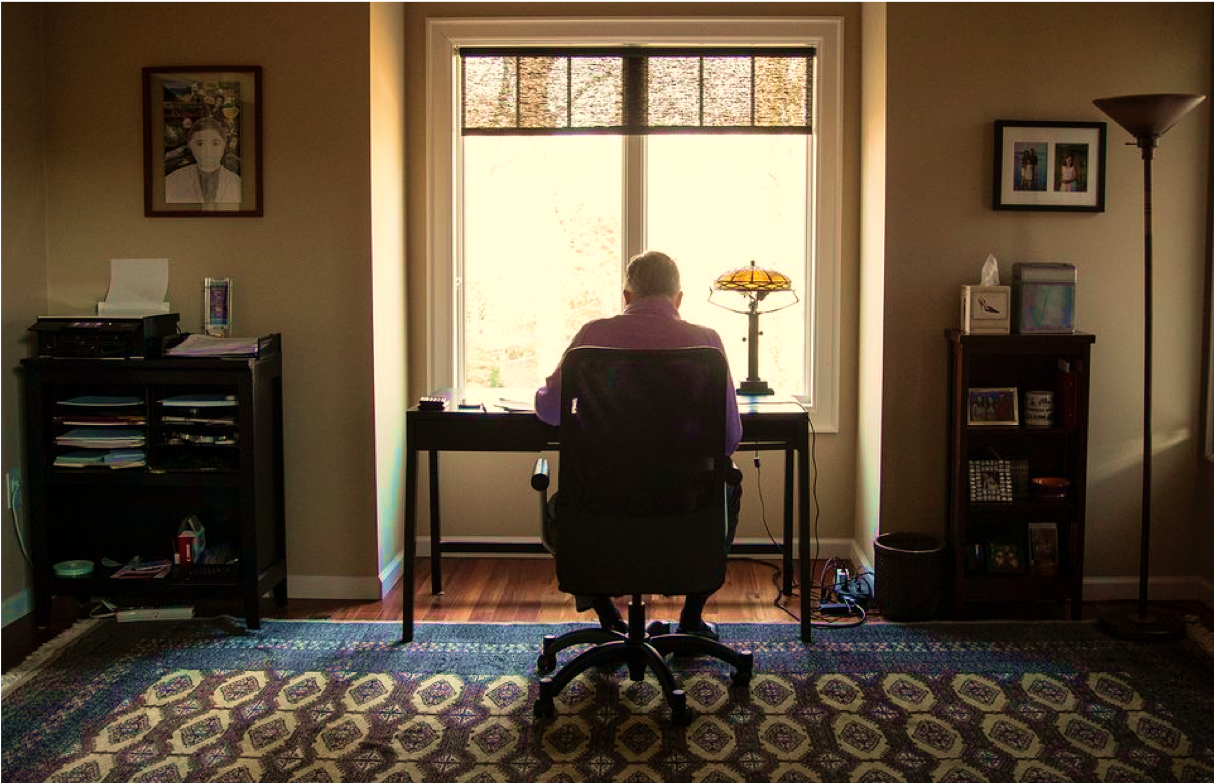The decisive move will show the CPC we mean business.
This Pandemic Demands Muscular Pragmatism

A Crisis of Will, Not Institutions.
In response to problems, Americans tend to reach for policy toolkits and knob twiddling on one hand, or big idealist “systemic change” on the other. Our discourse systematically over-rates abstract regime type, formal institutions, and policy, and systematically under-rates the variable that actually matters: whether the regime is healthy and competent, or ossified and decayed. But marginalism and idealism are two different ways to avoid actual reality and do approximately nothing. The golden mean, what actually makes governance happen, and what seems least accessible to the American political imagination, is muscular pragmatism.
And in the face of the coronavirus, muscular pragmatism is exactly what America needs now.
Falling From Grace
It’s usually quite improper to try to draw out the implications of a disaster that hasn’t fully happened yet. We know very little, in the moment, about what’s going on and cannot readily predict what’s going to happen. But the unique property of systemic risks, whether global warming, cascading supply chain disruption, or the emerging coronavirus pandemic, is that we can indeed predict that if we don’t get on top of them quickly and decisively, we’re in for a bad time.
As an aside and public service announcement, we’re right in the thick of this thing now, but we’re also still in the early stages of the fight against the pandemic. There’s still huge leverage if we implement drastic social distancing measures right now.
Coordinate with others to get remaining events cancelled. Stop taking transit. Work from home. Avoid public places. Shop once per week. Wave instead of shaking hands. Educate and mobilize your friends, families, and neighbors to do the same.
Awareness can spread faster than the virus, and bring the virality constant below 1.0. This isn’t about you. This is about the people you can save by implementing social distancing right now, and the people who are going to die if you don’t. End PSA.
The classic signal that a regime has lost the Mandate of Heaven is that a devastating natural disaster, rebellion, or plague is sent against it. The naturalistic logic is that if the regime were competent, it would have proactively handled potential disasters so that you would barely notice. By the time normal people are getting hit by a disaster, the regime has already screwed up. Even for seemingly out-of-the-blue disasters like a tsunami, state capacity and preparation makes a huge difference. The logic is especially clear in the case of plagues.
So, a lot of people, anticipating an impending disaster, are intensifying their questioning of the regime here in America. It’s not just Trump, either: this particular type of incompetence has been progressively getting worse since 1973. The authorities in general don’t seem to be quite on top of the coronavirus situation. In fact, in some cases, they seem to be downright negligent, and at best, late and underwhelming. It’s premature to call it, and we still have time to turn it around, but this isn’t the only obvious signal of a faltering Mandate.
The fighting around Trump has been an embarrassing failure of political order, whatever your politics. Our infrastructure is crumbling, industry is fake, the poor are desperate, education is an expensive joke, healthcare bankrupts you instead of healing, urban rents are out of control, and no one believes that anything can be said or done in public anymore. Despite years of alarm around global warming, those leading the charge have basically accomplished nothing.
Incompetence and Lack of Will
What is to be done? If we’re all recovering from the end of the world in a few months, what institutional reforms and policies will be needed to put things right and recover a firm Mandate? How far do we have to go?
The answer is no particular institutional change will solve this. What we need is a willingness and competence to actually use the institutions that we have, or those we will create. There is nothing in its formal institutions that prevents a democracy, even an American-style democracy, from springing into action to vigorously defend the republic against all threats, human or viral.
There’s nothing in the nature of the CDC that meant it had to effectively ban testing until the virus was already epidemic.
There’s nothing in capitalism as such forcing the government to be so worried about spooking the markets that we allow a hostile invader to get a beachhead on American soil.
We didn’t have to allow a cartel of rent-seekers to get in the way of our ability to provide affordable health care.
There’s nothing in the ideology of liberalism that necessarily prevents mass mobilization in times of crisis.
Yet somehow the ruling philosophy of the Western world came to be characterized by hand wringing and narrative management instead of competent action in pursuit of collective flourishing.
The problem is not our institutions; the real and underlying problem is our competence and will.
Don’t get me wrong. We need reforms, both marginal and systemic. We need so many reforms it will make your head spin. But none of them are bottlenecking our response to the virus, and none would have made the difference here.
The bottleneck to all those reforms, and the bottleneck to a decisive and effective response to systemic threats like the virus, is simply lack of dynamism and competence within most of our institutions. We are not willing or competent to act.
Besides, you can’t put through any reforms when you don’t have a strong, creative, and unified regime. This is why marginalism gets so little done, and why it has had to set its sights so low.
Our will to govern is itself decayed. Partially, this is because few are in position to freely make decisive judgements. Many of our executive positions do not allow for real decision-making, and those in command are often figureheads with far less actual structural power than most people realize. But mostly we suffer from a lack of courage, and a loss of confidence in the very idea of government.
This Law Isn’t Going to Rule Itself
Justifying our lack of courage to govern, we often point to the rule of law. It’s great that we have strong institutions, and norms of predictable restraint, but social structures, no less than machines, cannot be designed to provide perpetual motion. The law in itself is not capable of rule. Institutions are only tools, and things we do; someone has to care enough to actually use and maintain them. Government requires a confident elite that actually wants to govern.
The details of how we got here are complex, but the basics are simple: regimes decay with time. Succession is hard. We are now at the tail end of a long decay process, coming off the high point of our victory in the last major war. Everything is ossified, atrophied, and metastasized. Most of it needs to be fully rebuilt.
Rebuilding is a convenient time for rethinking, including rethinking our fundamental institutions, but the most direct problem right now is not the design of our institutions, but that our ruling mindset is barely trying.
As regimes decay, it’s only natural that younger, fresher energy comes in and rebuilds as they retire. When old regimes falter and lose their grit, younger regimes step up to take their place. Such is the cycle of history. When this is done well and sincerely, there is a high level of continuity in the functional parts and minimal conflict or disruption of service. A normal person should barely notice except for the optimistic change in energy.
The problem is that decayed institutions are extremely resistant to reform, either structural or cultural. Renewal needs to be partially organized outside of current institutions, in newly founded ones. But those organized networks don’t yet exist. Perhaps the pandemic will be the shock to the system that creates an opening for change.
Renewing Governance
The first thing we need to focus on is fighting the crisis. Implement social distancing by any means necessary, as fast as possible. Spin up support structures and logistical coordination that will be needed for our communities to sustain that for months on end. Every day we delay multiplies the death toll. We don’t have time to wait for guidance from above. In a crisis, everyone is looking for direction, and the man on the street has to assume a leadership role.
Someone has to be willing to exercise leadership.
But when we’re done fighting this thing, we need to redirect that momentum into broader renewal of our governance culture. We can start with conferences and summits to bring together the people who have been raising the alarm about this stuff for ages, and who have actually stepped up to do good work. Not just in regard to the pandemic, but more broadly: the epistemically astute, the risk-taking public spirits, sincere institution founders, and so on.
We need to thicken those networks, sync up on strategy to coordinate many different pieces, and pragmatically make compromises between different factions and existing functional power structures to create an effective unity around renewal of American governance.
We need energetic founders to pick areas of lagging state capacity and build companies and movements in those areas. To get the ball rolling and prove their energy, this should be stuff that anybody can do with a startup–like media, government tech, domestic industry, track II diplomacy, and so on. As these networks gain successes and solidify their relationships with official channels, possibilities will develop for new institutions to be built in more traditionally governmental space. (Yes, startup bureaucracies are possible.)
For any of this to occur, it is critical we retain a cooperative, non-adversarial mindset. Do not antagonize existing power structures, or turn to rebellion or mere complaining, even in times of crisis. The existing powers will want to see sincere and constructive work, traction, leadership, friendliness, and real plans before they make room for up-and-coming networks.
But presented with those things, the institutional response is likely to be more relieved than resistant.
This isn’t going to be a sprint, and it isn’t going to be accomplished by any one faction. Every American with public spirit and the ability to act should prepare to spend the next 30 years building institutions, picking up the slack on critical governance functions, and building consensus and will around governance.
It’s up to us to stop wringing our hands, develop the pragmatism of a responsible elite, and give ourselves the permission to act. Our country is calling us to service. Let’s step up.
The American Mind presents a range of perspectives. Views are writers’ own and do not necessarily represent those of The Claremont Institute.
The American Mind is a publication of the Claremont Institute, a non-profit 501(c)(3) organization, dedicated to restoring the principles of the American Founding to their rightful, preeminent authority in our national life. Interested in supporting our work? Gifts to the Claremont Institute are tax-deductible.
In wars, men die.
For the first time in centuries, we’re bringing it all back home.
Facing up to the failed state of America's mandarin class
Don’t let the Left use your panic for their gain.
We blew it. Normies are paying a heavy price.






